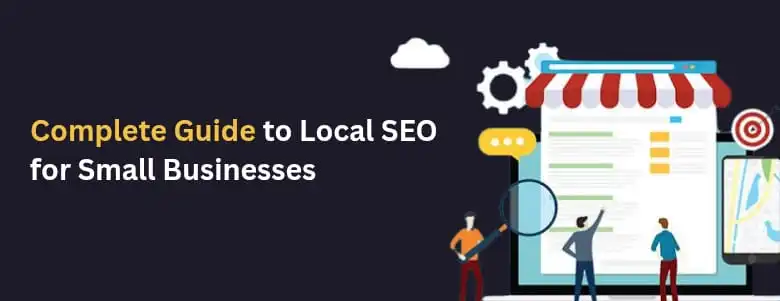In the search engine world, if you want your website to be ranked in 1st SERP, then your focus must be more than just off-page and content. Technical seo plays a crucial role in making your website journey smooth. Keeping an eye on technical seo services is necessary to make your website complete and rankable.
Today, in this blog, I’m excited to walk you through a step-by-step guide on how to optimize your technical SEO practices for better SERP rankings. Let’s dive in and make your website stand out!
Table of Contents
- What is Technical SEO and Why It Matters
- Why is Technical SEO Crucial for Website Rankings?
- Crawling and Indexing
- Page Speed Optimization
- Site Architecture and Navigation
- Mobile Optimization
- Hreflang for International SEO
- XML Sitemaps
- Structured Data and Schema Markup
- Canonical Tags and Duplicate Content
- Technical SEO Tools
- Thin Content and Content Quality
- Security and HTTPS
- Conclusion
- FAQ
What is Technical SEO and Why It Matters
Technical SEO refers to the process of optimizing a website’s infrastructure to ensure it is easy for search engines to crawl and index. It focuses on non-content-related elements that affect a website’s visibility, such as site speed, mobile optimization, and security features. For businesses, having technical SEO services in place is crucial for enhancing performance and ranking potential.
Why is Technical SEO Crucial for Website Rankings?
Technical SEO impacts how well search engines understand and rank your site. Without proper technical SEO services, even the best content can go unnoticed. Technical factors like page speed, Core Web Vitals optimization, and SEO site architecture directly influence search engine results. Improving these elements can significantly boost a website’s visibility.
Crawling and Indexing
What is Website Crawling?
Crawling is the process search engines use to discover content on your site. Search engine bots, or “crawlers,” visit your site to gather information about its structure and content. Proper technical SEO services ensure that your site is fully accessible and easy to crawl, which helps bots understand your content more efficiently.
How Does Indexing Impact Search Engine Rankings?
Once a search engine crawls your site, it moves on to indexing. Indexing involves storing and organizing your site’s content to serve it in search results. Websites that are poorly optimized for indexing often struggle to appear in top results. This is where Website crawling and indexing optimization comes in, ensuring your content is well-structured and easily found.
Tools to Check for Crawling and Indexing Issues
You can monitor your site’s crawling and indexing using the following tools:
You can monitor your site’s crawling and indexing using the following tools:
- Google Search Console: This tool helps track your site’s performance in search results and alerts you to any indexing issues.
- Screaming Frog: A website crawler that identifies technical issues, such as broken links and missing tags, which can affect indexing.
- Ahrefs: This tool provides insights into your site’s backlinks and organic search traffic, helping you identify indexing problems.
These tools are essential for conducting a Technical SEO audit and fixing issues that may prevent your site from being indexed properly
Page Speed Optimization
How Page Speed Affects SEO Rankings
Page speed is one of the most critical ranking factors. Google has made it clear that faster websites rank higher because they offer a better user experience. In 2025, Core Web Vitals optimization will be even more crucial as Google continues to emphasize user-centric performance metrics. Slow-loading pages can lead to high bounce rates, directly affecting your SEO.
Reducing Web Page Size and Eliminating Unnecessary Scripts
One of the key elements of page speed optimization is reducing your web page size. Compress images, eliminate unnecessary scripts, and leverage browser caching to enhance load times. These tactics fall under the umbrella of technical SEO services aimed at improving performance.
Tools to Check Page Speed (Google PageSpeed Insights, WebPageTest)
Tools like Google PageSpeed Insights, WebPageTest, and GTmetrix help analyze your page speed and provide recommendations for improvement. These tools are indispensable when performing a Technical SEO audit and identifying issues that slow down your website.
Site Architecture and Navigation
A flat site structure ensures that every page on your site is just a few clicks away from the homepage. This is crucial for both user experience and SEO. Flat structures help search engines crawl your site more efficiently, which is why SEO site architecture is a key focus area for any technical SEO services Strategy. s
The Role of Internal Linking for Deep Pages URL Structure Best Practices for SEO
A clean, descriptive URL structure is essential for both users and search engines. Keep URLs short, relevant, and keyword-optimized to enhance your website’s SEO site architecture. Avoid unnecessary parameters and ensure that URLs are properly formatted for indexing.
Mobile Optimization
Why is Mobile-First Indexing Important?
In 2025, mobile-first indexing will continue to dominate SEO. Google now prioritizes mobile versions of websites when indexing and ranking content. Ensuring your site is mobile-optimized is essential for staying competitive in search rankings, especially for businesses offering technical SEO services.
Tools to Check Mobile Usability
Tools like Google’s Mobile-Friendly Test and SEMrush’s Mobile SEO Audit help check your site’s mobile usability. By identifying and fixing issues, you can ensure your site is ready for mobile-first indexing.
Hreflang for International SEO
Why is the Hreflang Tag Important for Multilingual Sites?
For businesses targeting multiple countries, using the hreflang tag is essential. It tells search engines which language to display for users based on their location. Without proper hreflang implementation, your site may show incorrect versions to users, impacting your global SEO efforts.
Best Practices for Implementing Hreflang
Ensure that hreflang tags are correctly implemented in the page headers or sitemaps. Regularly audit your hreflang setup using Google Search Console to avoid mistakes that could hurt your rankings in different regions.
XML Sitemaps
Importance of XML Sitemaps for Indexing
XML sitemaps serve as roadmaps for search engines, guiding them to all the important pages on your site. A well-optimized sitemap is a crucial part of technical SEO services, ensuring that search engines can find and index all of your content efficiently.
How to Validate and Submit XML Sitemaps in Google Search Console
After creating your XML sitemap, it’s essential to validate and submit it through Google Search Console. This process helps ensure that search engines are aware of all the content on your site, boosting your chances of getting indexed correctly.
Structured Data and Schema Markup
What is Structured Data?
Structured data, or schema markup, helps search engines understand your content better. By adding structured data to your site, you make it easier for search engines to display rich snippets, which can improve your site’s click-through rate (CTR).
How Rich Snippets Can Improve Click-Through Rates (CTR)
Rich snippets, generated through structured data, enhance your search listings by providing additional information like reviews, pricing, or event details. This not only improves visibility but also increases CTR, making structured data an essential part of technical SEO services.
Tools to Validate Structured Data (Google’s Structured Data Testing Tool)
Use tools like Google’s Structured Data Testing Tool to validate your schema markup and ensure it’s correctly implemented.
Canonical Tags and Duplicate Content
How Duplicate Content Hurts SEO?
Duplicate content can lead to indexing issues and cause search engines to rank the wrong page. This can dilute your SEO efforts, making canonical tags essential for preventing duplicate content issues.
Best Practices for Using Canonical Tags
Canonical tags tell search engines which version of a page to prioritize. Ensure that all duplicate or similar content is consolidated under a canonical tag to avoid any ranking confusion.
How to Handle Duplicate Content with Noindex Tags?
In cases where canonical tags aren’t enough, use noindex tags to prevent duplicate content from appearing in search engine results. This ensures that only your best content gets ranked, improving your overall SEO.
Technical SEO Tools
Overview of Essential Tools for Technical SEO Audits
Some of the best tools for technical SEO services include SEMrush, Ahrefs, and Screaming Frog. These tools help you perform in-depth audits, monitor site health, and identify critical issues that affect rankings.
Thin Content and Content Quality
How Thin Content Affects Rankings?
Thin content lacks substance and value, often leading to poor user engagement and lower rankings. Ensuring high-quality, in-depth content is vital for improving SEO.
Tools to Identify and Fix Thin Content (Raven Tools, Semrush Site Audit)
Use tools like Raven Tools and SEMrush Site Audit to identify pages with thin content and enhance them by adding more value-rich information.
Security and HTTPS
Why HTTPS is a Ranking Factor?
Google considers HTTPS a ranking factor because it ensures a secure browsing experience. Having a secure site is now a necessity, not an option, especially for businesses looking to provide the best technical SEO services.
How to Ensure Your Site is Secure for Users and Search Engines?
To secure your site, ensure your SSL certificate is valid and regularly updated. Use tools like SSL Labs to monitor your site’s security performance.
Conclusion
As we move into 2025, optimizing your website’s technical aspects is crucial for maintaining a competitive edge in search rankings. From technical SEO services to Core Web Vitals optimization and SEO site architecture, ensuring that your site is technically sound will not only improve performance but also drive sustainable organic growth for your business.
What is technical SEO?
- What is technical SEO?Technical SEO refers to the optimization of a website’s backend to improve its crawling, indexing, and ranking potential.
- How does page speed affect SEO?Faster-loading pages provide a better user experience and are more likely to rank higher in search results.
Author
-

Shweta Tiwari brings her expertise in marketing and a passion for clear, engaging communication to the world of digital content. With 5 years of experience, she excels at breaking down complex marketing strategies into easy-to-understand insights. Specializing in digital marketing trends and strategy development, Shweta helps businesses grow and adapt in today’s fast-paced digital landscape





